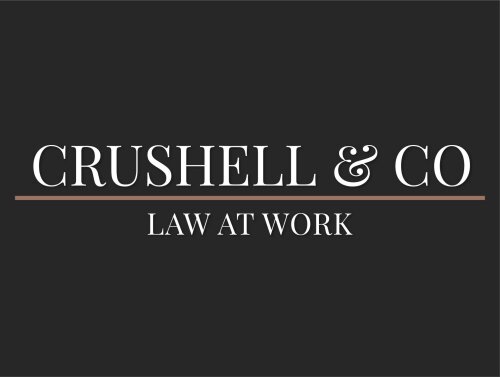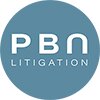Best Drugs & Medical Devices Lawyers in Dublin
Share your needs with us, get contacted by law firms.
Free. Takes 2 min.
List of the best lawyers in Dublin, Ireland
About Drugs & Medical Devices Law in Dublin, Ireland
Drugs and medical devices law in Dublin, Ireland, encompasses a broad range of regulations and legislations that govern the development, approval, marketing, and distribution of pharmaceuticals and medical devices. The primary objective of these laws is to ensure the safety and efficacy of medical products available to the public. Compliance with these regulations is overseen by a combination of Irish governmental bodies and European Union directives.
Why You May Need a Lawyer
There are several scenarios where individuals and businesses may require legal assistance regarding drugs and medical devices in Dublin, Ireland:
Product Liability Claims: If you have been injured or suffered adverse effects from a drug or medical device, you may need a lawyer to help you claim compensation.
Compliance Issues: Pharmaceutical companies and medical device manufacturers must comply with a myriad of local and EU regulations. A lawyer can assist with understanding and adhering to these laws.
Intellectual Property: Protecting patents and trademarks for new drugs or medical devices often requires legal expertise.
Regulatory Approval: Navigating the regulatory approval process for new medical products is complex and often necessitates legal advice.
Clinical Trials: Legal guidance is crucial for adhering to ethical and regulatory standards for clinical trials.
Local Laws Overview
Several key aspects of local laws are particularly relevant to drugs and medical devices in Dublin, Ireland:
The Health Products Regulatory Authority (HPRA): The HPRA is the regulatory authority in Ireland responsible for the licensing and monitoring of all medicinal products for human use.
Medicinal Products (Control of Placing on the Market) Regulations 2007: These regulations implement Directive 2001/83/EC and deal with the conditions for granting marketing authorizations for medicinal products.
EU Medical Device Regulation (MDR): Applies to all medical devices being marketed within the EU, including Ireland. This regulation emphasizes the safety, performance, and traceability of medical devices.
Pharmacy Act 2007: This act regulates the practice of pharmacy and the operation of pharmacies, ensuring the safe supply of medicines to the public.
Frequently Asked Questions
What is the HPRA?
The Health Products Regulatory Authority (HPRA) is the agency responsible for regulating human and veterinary medicines, medical devices, and other health products in Ireland.
How do I report a problem with a medical device?
If you encounter an issue with a medical device, you should report it to the HPRA. They have an online reporting system and can provide guidance on what information is needed.
What steps are involved in getting a drug approved in Ireland?
The drug approval process involves several stages, including pre-clinical research, clinical trials, submission of a marketing authorization application to the HPRA, and ongoing post-marketing surveillance.
Do I need a lawyer to file a product liability claim?
It is highly recommended to consult with a lawyer if you are filing a product liability claim. They can guide you through the legal process, ensuring you meet all necessary requirements and maximize your chances of success.
What are CE marks and why are they important for medical devices?
A CE mark indicates that a medical device complies with EU safety, health, and environmental protection standards. It's a legal requirement for marketing devices within the EU, including Ireland.
How are clinical trials regulated in Ireland?
Clinical trials in Ireland must comply with both Irish and EU regulations. This includes securing approval from both the HPRA and an ethics committee before commencing the trial.
What legal protections are there for whistleblowers in the pharmaceutical and medical device industries?
Irish law provides protections for whistleblowers under various pieces of legislation, including the Protected Disclosures Act 2014, to ensure that individuals can report concerns without fear of retribution.
Can foreign pharmaceutical companies sell drugs in Ireland?
Yes, but they must comply with Irish and EU regulations, including obtaining the necessary marketing authorizations from the HPRA.
How can I protect my intellectual property for a new medical device?
Protecting intellectual property typically involves obtaining patents, trademarks, and possibly trade secrets. Consulting with a lawyer who specializes in intellectual property law is advised.
What should I do if I receive a recall notice for a drug or medical device?
Follow the instructions provided in the recall notice and contact your healthcare provider for further advice. It may also be advisable to consult with a lawyer to understand your rights and options.
Additional Resources
These resources can be helpful for someone seeking legal advice in the field of drugs and medical devices:
Health Products Regulatory Authority (HPRA): The official regulatory body for medical products in Ireland.
European Medicines Agency (EMA): Responsible for the scientific evaluation, supervision, and safety monitoring of medicines in the EU.
Irish Medicines Verification Organisation (IMVO): Ensures the verification of medicines and prevents counterfeit drugs.
Law Society of Ireland: Provides a directory of registered solicitors specialized in various fields, including medical and pharmaceutical law.
Next Steps
If you need legal assistance in the field of drugs and medical devices, here are the steps to take:
Identify Your Legal Needs: Clearly define the nature of your legal issue, whether it is related to product liability, regulatory compliance, intellectual property, etc.
Consult a Specialist Lawyer: Seek out a solicitor who specializes in drugs and medical devices law. The Law Society of Ireland can provide a list of qualified professionals.
Prepare Documentation: Gather all relevant documents, including medical records, product information, and any correspondence related to your case.
Schedule a Consultation: Contact the lawyer’s office to schedule an initial consultation to discuss your case and potential next steps.
Follow Legal Advice: Follow the legal advice provided by your solicitor to navigate through the legal complexities effectively.
Lawzana helps you find the best lawyers and law firms in Dublin through a curated and pre-screened list of qualified legal professionals. Our platform offers rankings and detailed profiles of attorneys and law firms, allowing you to compare based on practice areas, including Drugs & Medical Devices, experience, and client feedback.
Each profile includes a description of the firm's areas of practice, client reviews, team members and partners, year of establishment, spoken languages, office locations, contact information, social media presence, and any published articles or resources. Most firms on our platform speak English and are experienced in both local and international legal matters.
Get a quote from top-rated law firms in Dublin, Ireland — quickly, securely, and without unnecessary hassle.
Disclaimer:
The information provided on this page is for general informational purposes only and does not constitute legal advice. While we strive to ensure the accuracy and relevance of the content, legal information may change over time, and interpretations of the law can vary. You should always consult with a qualified legal professional for advice specific to your situation.
We disclaim all liability for actions taken or not taken based on the content of this page. If you believe any information is incorrect or outdated, please contact us, and we will review and update it where appropriate.













